Feeling like you're not ready?
Maybe you feel, like I did at a certain point, that you're not ready, not good enough for the stage, and very far away from ever going on stage.
But despite the fear, the desire is there. This is a crippling tension. It would be great to be comfortable in your own skin and throw out there what you have to give. To be able to be proud of what you have to say. And when you hold yourself back from that, it reflects on how you feel about yourself. You put yourself down: 'I guess I'm not interesting/not good enough to share'.
Or maybe you're more experienced, maybe you do go on stage, but feel like nobody really cares. You don't know how to make it a memorable experience, to make that connection.
The stage fright ladder
For many, singing on stage is not a pleasant experience. For some, unfortunately, it's a life-long battle. Where are you in your journey?
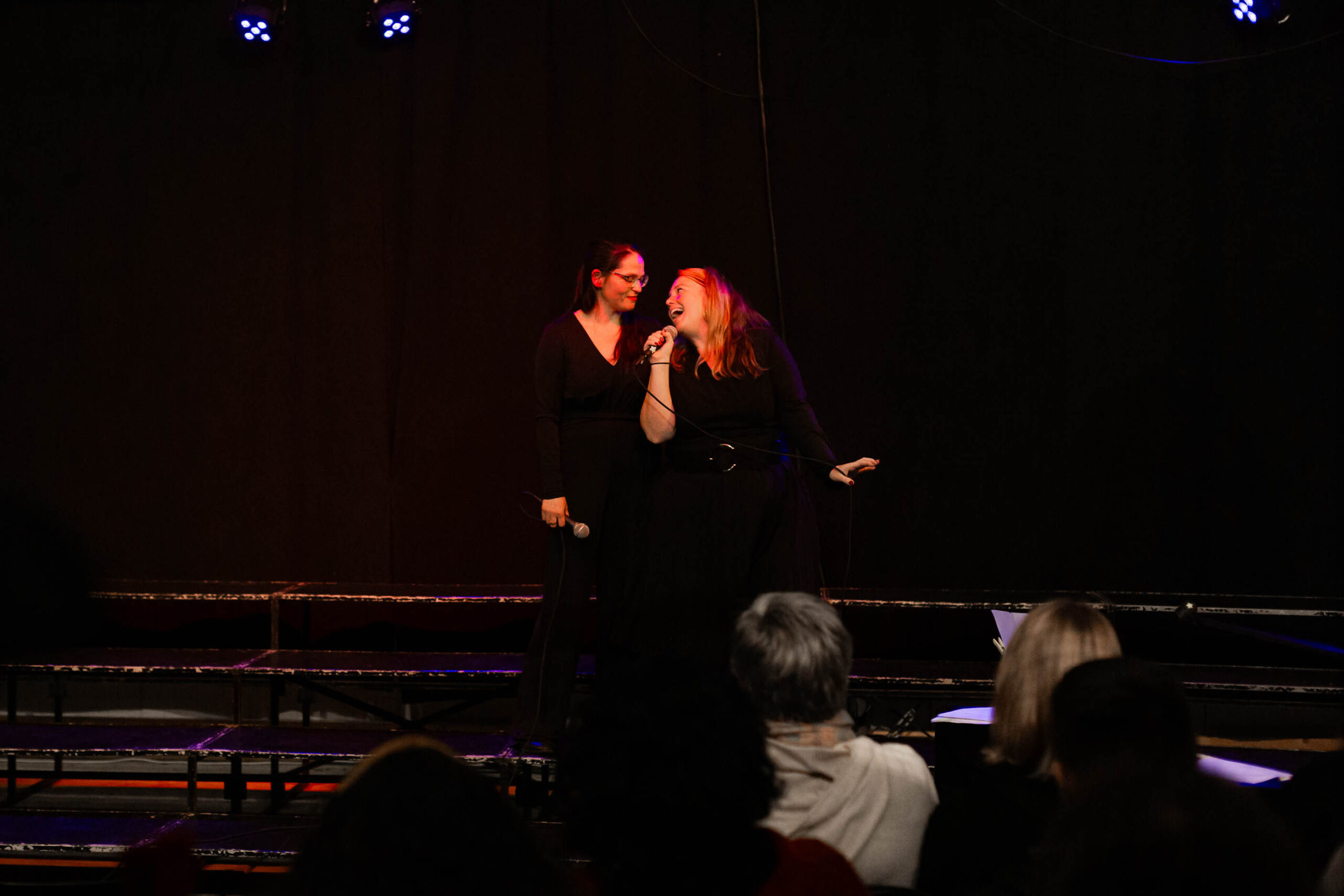
A duet (Take Me or Leave Me) with Kim, one of my students
Here's a plan
Just going repeatedly on stage won't get you down the ladder necessarily and to eventually feel good on stage and move the audience. You need a plan. I have it for you, and it doesn't take a lifetime to implement: more like weeks or months.
Look, there are no instant solutions when it comes to a serious business like becoming a better singer on stage. But... there are tricks which I have found to work like magic. One of the most effective tricks are my performance exercises: you will instantly experience dramatic changes in your performance. Still, this change won't last unless you practice it in front of others. And it is this process I will guide you through, baby step by baby step, depending on your fright level.
What is SingWell on Stage?
SingWell on Stage is my online course. It has four modules, each of about 8 video lessons, geared to make you reach a milestone.
Combined, these modules tackle the two pillars of working on your performance. First, dealing with insecurities and being able to go on stage regardless. Second, to perform in a satisfying way. As even people without stage fright struggle to give a performance on stage to their full abilities.
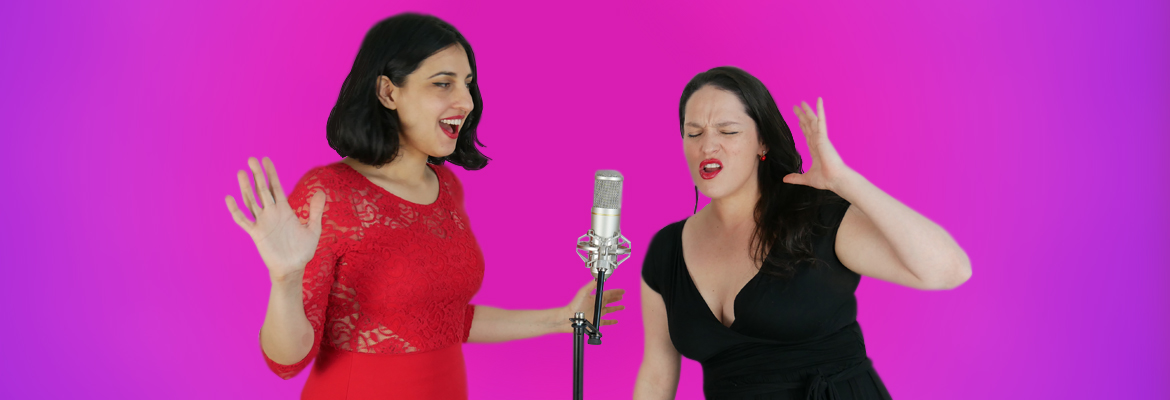
1
Module 1: Being ready for the stage
- With the mindset of a performer I'll teach, you will not only bring out your personality, but it will feel like earning your place in the world. Even if this seems a long way from where you are now. Ask my student Coco, who couldn’t sing for me when she came to me and performed and auditioned a year later.
- How practice for the stage will rekindle the passion you feel for singing, and will remind you why you love this. You might have lost the joy because of unpleasant stage experiences or narrow focus on vocal technique perfectionism. You will want to start putting this ingredient in any singing practice, regardless if you have a show upcoming.
- How exactly knowing at what point to close the book of your normal singing practice shut is crucial - and how it will liberate you from your usual worries about vocal technique. This new practice habit and mentality will make you sing better on stage and - interestingly - also improve your vocal technique.
- You’ll find out which
key performance habit separates professional from amateur singers (no it’s not the level of their vocal abilities!). How sticking to this principle is like a multi-stage rocket, which boosts your confidence, charisma, fun in the art, and smoothes out mistakes in the mind of the audience.
- How knowing how to time your next performance (be it karaoke, an open mic, or an audition) is crucial in catapulting you forward. I’ll provide you with detailed suggestions and an exercise plan, depending on if you are a beginner or more advanced.
- What we as singers can learn from actors, which is the key to being expressive. And how toying with these techniques in your sing-through session will help you discover the elements that will make your performance authentic and moving.
- Are you one of those who tend to think that everything seems terrible when they perform? Welcome to the club. But I will gently lead you away from this counterproductive mental habit, by introducing you to three types of illusion-breaking feedback techniques. It will save you a lot of heartache in the process of becoming a better performer.
- How to reach the level of conviction that professional or even famous singers have who are actually not that good vocally. I’ll show you how mantras can be tools that save you in the beginning stages of this new mindset, but also later in your career on stage.
- Why it’s easier than you might think to deal with that inner voice that whispers nasty things in your ear when you perform. Without force, but with gentle nudging it will slowly lose its power over you. Even if these thoughts have been ingrained since long. (you will benefit from this in other areas of your life as well).
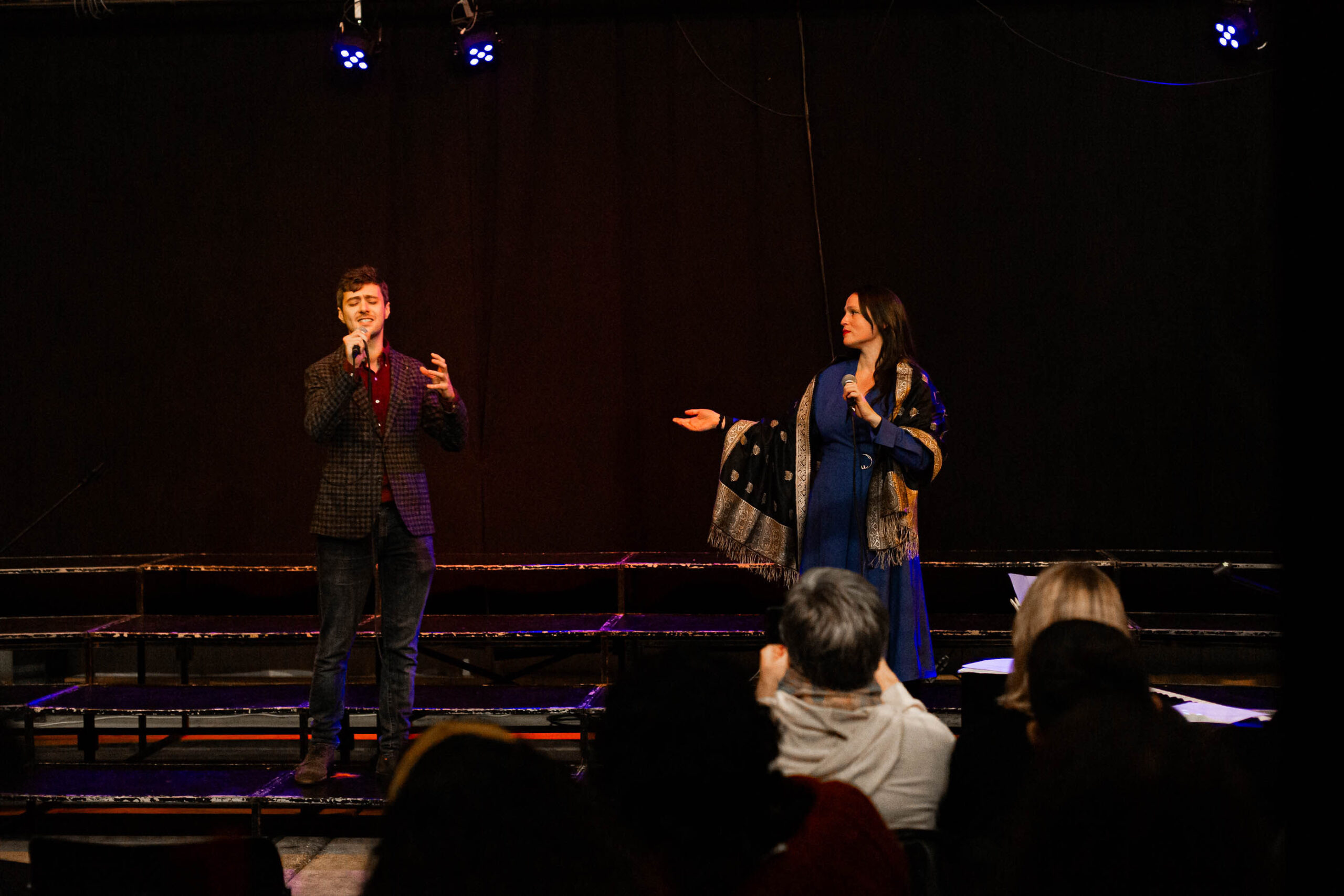
Performing Barcelona with student Manuel
2
Module 2: Stage fright, no longer a big deal
- How keeping in mind that it is ok to sing with stage fright, but just knowing how to deal with it, will set you free. It’s not our goal of course to keep singing with nerves, but you will lose your fear of the beast and will discover that a bit of stage fright could even lead you to unexpected places in a show. A spice rather than a toxin.
- Stage fright comes in shapes and sizes and that’s why I don’t give generic advice, but a plan that is dependent on where you are in your stage fright journey. By executing the plan baby step by baby step, you will move down the stage fright ladder from the highest levels to the most manageable, or even get rid of it.
- Why executing your plan in the right order is essential for stage fright practice. Trying things randomly could throw you back and mess up your confidence. I’ll make sure you only go to the next step when you’re ready for it. It’s pretty smooth sailing, as long as you follow this map.
- Positive thinking has its dangers in these situations, and can be counterproductive if it’s not done right. With my mantra monkey approach [note to self: I should trademark that] you’ll be sure that you have the right angle to your positive thinking. Without force feeding yourself messages that feel insincere or not right for the place where you are right now. We’ll find the silver bullets that work for you and will carry you through performances in tough times.
3
Module 3: A routine before you step on stage
- Why a rehearsed routine to prepare for the day will help you feel more at ease before a performance. How and which type of bodywork will help you in this.
- The performance itself: how to step on and off, where to look, how to compose yourself after the song is finished and you receive the applause: this is where you will tell the pro’s from the amateurs
- Backstage toolkit: backstage you can feel lost and all-over the place. My toolkit solves this. It’s a set of mental and physical tools that we’ll assemble that are especially suited for your situation. You will (relatively) cruise through this phase instead of suffer.
4
Module 4: Great stage performances
- Why violinist Itzhak Perlman thought of a hamburger during a show and how this kept the audience entertained, and how we’ll figure out performance exercises that will help you deliver a moving performance.
- Why performance exercises are gold: their effect on your expression on stage is immediate.
- Why thinking of the lyrics will not only have the effect of a more expressive delivery but also a better vocal quality
- Toy with scenarios like 'Your confident self', 'The silliness competition' and 'The FBI investigation': performance exercises that will make you more expressive each in a different way.
- How to turn around the distractions that happen on and off stage during a performance to your advantage, and how this will make your performances even better
As a dancer, no one ever told me how to behave on stage! Thank you so much, Linor
Antje Gebhart, singer and dancer
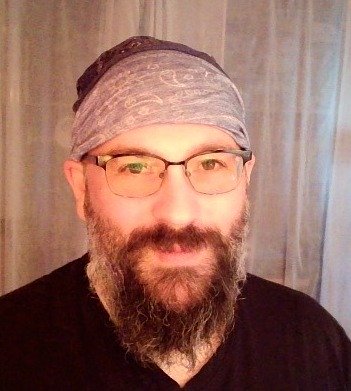
'Also helped me with social hang-ups I didn't realize I had'
Before taking Singwell on Stage, singing in front of a group or strangers just seemed like something that wasn’t in the cards for me because of overwhelming performance anxiety. Even when trying to record, just the idea of someone eventually hearing me affected my performance negatively.
Then I took the course, as well as live singing lessons with Linor. The ideas and insights in the course started, unexpectedly, helping me with some social hang-ups I didn’t even realize I had, such as avoiding any and all social gatherings. It helped me learn to manage negative self-talk as well as the expectations I had put on myself about performing and social interactions.
The great thing about the course though is that it’s not just about anxiety in performance, nor is it a “one size fits all” solution to whatever performance issues you may be experiencing. There are a variety of tools and techniques suitable for different personality types. If one exercise doesn’t work for you, there are plenty or others. I focused mostly on the stage fright aspect of the course, but even if that is not your main issue, there is still so much practical advice on all aspects of performance—how to prepare, mindset, eating and drinking, bodywork, plowing through mistakes and mishaps, etc.
The course also provides the opportunity to participate in free online practice concerts, and Linor and her students are super-warm and supportive. The monthly concerts have been great practice, not just for singing itself, but for putting myself out there with intention and for gaining experience managing all the negative emotions that go along with performance.
I am still nervous when singing and playing in guitar in front of an audience, whether it's for the monthly group or just for my wife, but it is so much more manageable now after taking the course.
Eli Walsh // Songwriter and Education Assistent
About me as a performer
“In a difficult tour of over 60 performances of the Phantom of the Opera, in two-and-a-half months, Linor maintained a high level of energy and professionalism combined with a refreshing sense of humour. I believe Linor to be an asset to any company or opera house.”
Deborah Sasson, renowned opera singer

Enrol in SingWell on Stage
My online course SingWell on Stage is a series of 34 video lessons where you can ask questions in the comments that I answer personally. As far as I know, it's the only systematic approach to mastering singing in front of people. Within a month or two your well-being on stage and your performance will have dramatically improved. You are supported by a community of singers who are in the same boat.
'The course's performance exercises saved me on stage at my brother’s wedding'
Carla Paping, singing student
277 $189
If you try this course and are not satisfied with the results, you can get your money back. Valid for six months.
BONUS: access to my community of fellow students
This bonus is very valuable. As a course taker, you can take part in my online student concerts. I have found that each and every student and course taker who has participated in these low-threshold online concerts has enjoyed and benefited greatly. It gives us (I participate as well) an opportunity to sing a song in front of a like-minded community and to give and receive constructive feedback.
Who joins this course?
What my students say about my
stage fright coaching
Antje Gebhart
Singer and dancer
'Thank you so much, Linor!'
What really, really helped me in SingWell on Stage, was the lesson about going on stage and how to leave the stage and where to look! As a dancer, I danced many, many times in front of audiences. And lots of people got the creepy gaze from me. I really never knew what to do and no-one told me! I played a lot of theater, was in dancing classes and no-one ever told me these things! Thank you SO much Linor!
Carla Paping
Singing student
'The performance exercises saved me on stage at my brother’s wedding'
“When performing with my ukulele club, I used to be nervous and couldn’t play with conviction. I followed one of Linor’s stage fright workshops. Meeting her triggered the desire in me to take up singing.
It used to be my conviction that singing is something that other people do, not me. I trusted Linor, I felt comfortable with her. At first the exercises felt a bit unnatural. But as the results came, singing started to get actually really fun.
When my brother prepared for his wedding, I let myself be persuaded to perform. Linor gave me performance exercises. For example, in one exercise I had to sing for her while she as an audience member played distracted. My task was to draw her back in. This turned out to be a life saving exercise. At the wedding, as I started my song, many people were talking. Without the exercise I might have gotten discouraged or silent. Now I just kept singing and drew them in.
After the performance I got nice compliments but what I care most about is putting my feeling into something that I care about."
Dunya (36, not her real name)
Amateur musical singer and front-end developer
‘From freezing up to landing two musical roles.’
“I’m a person who doesn’t like to stand in front of a group. My body could never cope with it. I would physically freeze and my mind would go blank.
But all the time, I did have the ambition to perform. I have loved musical theater since the age of four. I would always imagine myself being on stage. But it was a secret desire, and I always thought it could only happen to other people, not me.
I have tried other singing teachers, but with Linor I wanted to continue. What I love about her is she REALLY knows what’s she’s talking about. And she knows how to teach that and translate that to hands-on practice. Another thing I love about her is she’s very caring but she’s straightforward and doesn’t compliment me for everything I do. (I hate it when teachers do that.)
When covid hit, I decided to take practice more seriously. Why not actually try to get on stage? I discussed it with Linor and she made a plan. From then on, I would combine private singing lessons with dedicated homework.
The course was a vital part of my teaching plan. Linor’s online student concerts were part of that too. It is one of the greatest investments I’ve made. What helped me a lot is that it explains why people get nervous, that it’s just the mechanics of our bodies. Also the performance exercises were very helpful: different scenarios you imagine that make you more expressive. For example, the scenario ‘Sing to the judge’, where I imagine singing to the judge and having to get his attention. Also: the ‘mantras’ are quite powerful: things you say to yourself while singing. I experimented with a few and slowly but surely, they started working for me.
I still get nervous, especially during auditions. But: I can function. And I landed two parts in musical productions in Amsterdam! I dream big: West End. Friends remind me that I should already be proud, considering where I stood just two years ago. Not only has my technique improved, but I’ve learned to sing in front of people, and I’ve learned to express myself as a singer.”
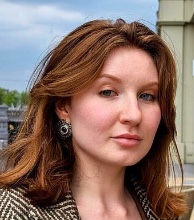
Gabi Buza
"Sooo valuable in honing my sound.... instilled in me the belief"
"I want to express my deepest gratitude for the incredible impact Linor has had on my singing journey and overall growth as an artist. Her unwavering dedication and expertise have been instrumental in transforming my voice, confidence, and on-stage performance. The carefully crafted performance exercises she provided me with have been sooo valuable in honing my sound and elevating my abilities to new heights.
Linor's passion for teaching and music is evident in every lesson, and her encouragement has been a constant source of inspiration for me. She has not only taught me technical skills but also instilled in me the belief in my own potential, allowing me to find my voice and embrace it with confidence. Thank you Linor, for being my teacher!"
Your technique doesn’t have to be splendid to move the audience
You just have to (l)earn your place on stage
Singing on stage is a different beast altogether: your body and mind behave differently. You won't improve the most by simply doing it a ton of times. Instead, if you have a set of tools and exercises, you will get better at those. This will leverage your stage performance. It's knowing what to practice. It's just a system you should follow.
You've struggled long enough... get dramatic results within weeks
Price $277 $189

100% Satisfaction Guarantee for six months
You are fully protected by my 100% Satisfaction-Guarantee. If you don't feel happy after buying and trying out this course, don't hesitate to let me know and I'll send you a prompt refund.
Linor Oren, SingWell
Let me help you bring out your personality
What expresses you better than your voice? What does it mean if you are afraid to use it? What would it mean if you didn’t hide it?
I’ve had singing students come to me: "I am afraid my voice would be too loud and my neighbors would hear it." Or: "I wanted to sing all my life but didn’t, because I was told not to sing."
But your voice is a significant part of you. So you are entitled to have a voice, both literally and figuratively. That is why singing students and professional singers will testify one by one how learning to sing brought out their personality.
You flourish by singing. And if you decide to share it and display yourself, as in, perform: it makes you work on your confidence, on your right of self expression. That’s deeper than just singing. That's earning your place in the world.
I'm there with you every step of the way.
Linor